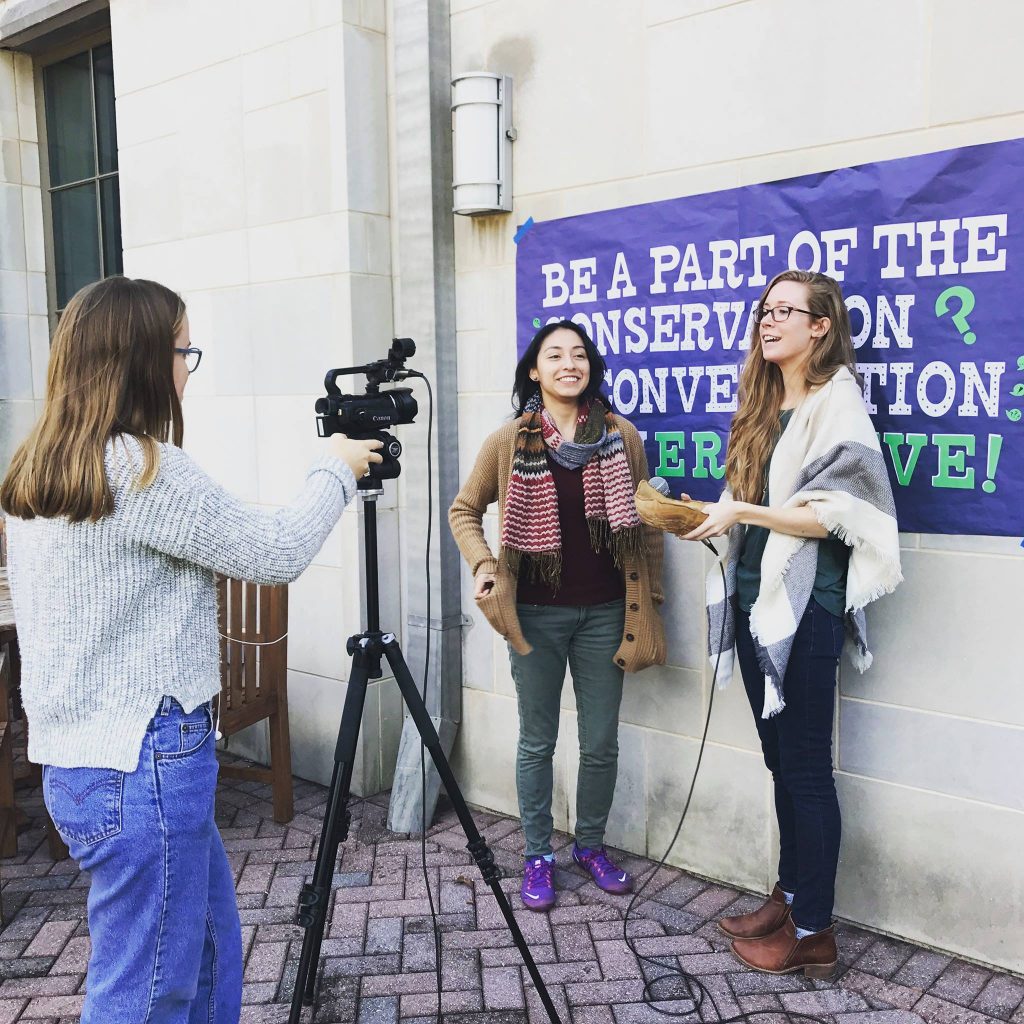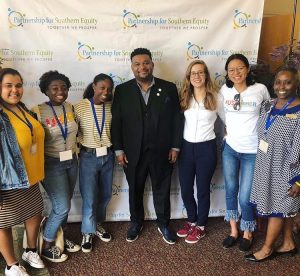Sustainability Handbook
Created in collaboration with Agnes Scott’s Center for Sustainability, this handbook was created for campus-wide use in training and informing the community of the college’s sustainability initiatives. In order to create the design and write brief, engaging, but informative copy for the Handbook, I interviewed a number of campus experts to create the most comprehensive guide possible. A Sustainable Event Planing Guide is forthcoming.
Feel free to flip through the Handbook to see my copywriting and design work in action.
Environmental Residency
As an Environmental Resident, I work with a group of students to promote sustainable living on Agnes Scott’s campus. We collaborate on programming within the residence halls and the general community. Previous projects have included farmer’s market trips, garden workdays, arboretum scavenger hunts, and a video series aimed at increasing awareness of topics in sustainability. You can take a peek at the Water Conservation edition below.

Towards a More Equitable Future: Environmental Advocacy at Agnes Scott
In the Spring of 2018, I began working as a volunteer with the Center for Sustainability at Agnes Scott. I worked over the course of the semester, helping them write their STARS (Sustainability Tracking and Review System) report that would go on the receive a Gold level rating from the American Association of Sustainability in Higher Education.
While in the office, I began to notice that the Center focused heavily on sustainability in the most ecological sense, creating programming around our arboretum, the beehives, or the effects of climate change on the earth’s natural systems. Rarely, though, did we ever examine how climate change and environmental degradation affect humanity itself, especially minority
groups such as women, children, and people of color. In conversations with other members of the Center and students around campus, it became clear that the offices programming and outreach was not welcoming to all students because it lacks diversity in both its staff and the range of topics we address.
So, I met with Susan Kidd, Director of the Center for Sustainability, and proposed that she hire me as the Environmental Justice intern for the summer of 2018. In this position, I explained, I would be able to focus a whole summer on examining the way that our office presents itself on campus and creating an actionable plan to promote topics of environmental justice within our office and throughout the campus. Thankfully, Susan agreed that it would be a beneficial position to have, and we began working on a plan for how the internship could work most effectively.
Because it was a completely new position and project in the Center, there was no groundwork laid or set requirements. It was up to me to propose a format for the internship, which included a proposed schedule of work hours, list of expected deliverables, individual timelines, and even a budget for me to attend a conference in Minneapolis. Over the summer, I set my own hours and worked remotely for 75% of my internship. This required me to set myself deadlines and remain focused and self-motivated.
The internship pushed me out of my comfort zone because it required deep research on a field I was inexperienced in. In order to gain more knowledge, I read academic studies, books, poetry and prose, and interviewed local environmental justice leaders in order to see how they approach their work. I was also not used to such a loosely constructed project in which I set my own hours and deadlines. It forced me to make myself accountable even without a person above me checking in or asking for consistent updates.
As a result of my internship, I proposed that the Center adopt a Year of Climate Justice where we dedicate ourselves to having more dialogues about the intersections of race, class, gender, and environmental degradation such as climate change. I also planned a monthly newsletter, speaker series, artists talks, book series, and an Earth Month keynote speaker and library book series. As one of the first steps to get students more involved with these topics, I served as an ambassador to the Partnership for Southern Equity’s Just Energy Summit, bringing along three other students as a delegation to the conference. In addition to this, I am also acting as an advisor to the Environmental Residents at Agnes Scott to ensure that every month of programming they do is centered around a theme of environmental justice.
While I am very excited to roll out these programs in the office, the internship as a whole allowed me to become much more comfortable with asking for what I think should be done, such as creating my internship, sending me to a conference, implementing a Year of Climate Justice, and now expanding my internship into the Fall semester to continue the work I am doing. It can be intimidating as a student to request large things such as jobs or money from people, but this experience has given me the practice and confidence to pursue opportunities and projects that I feel are important.
